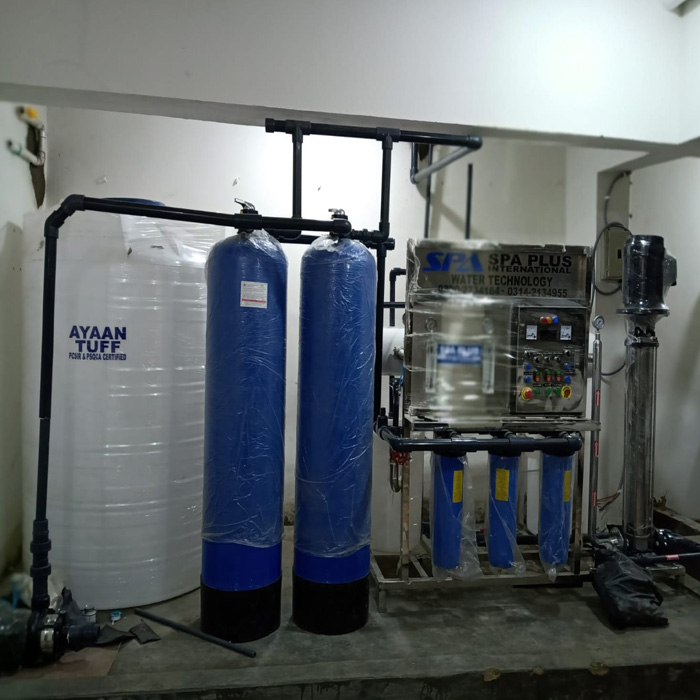Understanding De Ionizer Plants
De Ionizer Plants are specialized water treatment systems designed to remove ionic impurities from water, resulting in deionized (DI) water that is exceptionally pure and free from dissolved minerals and contaminants. Utilizing ion exchange technology, these plants are essential in various applications where high-quality water is critical, such as in laboratories, pharmaceuticals, electronics manufacturing, and power generation.
Importance of De Ionizer Plants
The increasing demand for pure water in numerous industries has made De Ionizer Plants vital. Their importance can be highlighted in several key areas:
Purity of Water
De Ionizer Plants are capable of producing high-purity water that meets stringent quality standards. The removal of dissolved salts, heavy metals, and other ionic impurities is crucial for applications where even trace amounts of contaminants can affect product quality and safety.
Versatile Applications
Deionized water produced by these plants is suitable for a wide range of applications, including industrial processes, laboratory experiments, cooling systems, and the preparation of pharmaceuticals. The versatility of De Ionizer Plants makes them valuable in various sectors.
Compliance with Regulations
Many industries are subject to strict regulations regarding water quality. De Ionizer Plants help companies comply with these regulations by providing water that meets or exceeds required purity levels.
Cost-Effective Solution
Investing in a De Ionizer Plant can lead to significant long-term savings by reducing reliance on costly bottled water or third-party water treatment services. The ability to produce high-quality water on-site enhances operational efficiency and minimizes expenses.
Components of De Ionizer Plants
A De Ionizer Plant consists of several key components that work together to ensure effective water purification:
Pre-treatment System
Before the water undergoes deionization, a pre-treatment system typically includes sediment filters and carbon filters to remove larger particles and chlorine. This step protects the ion exchange resins from fouling and extends their lifespan.
Ion Exchange Resins
The heart of a De Ionizer Plant is the ion exchange resins, which are responsible for the deionization process. These resins are typically categorized into two types: cation exchange resins, which remove positively charged ions (e.g., calcium, magnesium), and anion exchange resins, which remove negatively charged ions (e.g., chloride, sulfate). The resins effectively exchange these ions with hydrogen and hydroxyl ions, producing pure water.
Regeneration System
Over time, ion exchange resins become saturated with impurities and need to be regenerated. A regeneration system uses chemicals (typically acids and bases) to restore the resins’ ion exchange capacity, allowing them to be reused for deionization.
Post-treatment System
After the deionization process, a post-treatment system may be employed to ensure that the water meets specific quality standards. This can include UV disinfection or final filtration to remove any remaining impurities.
Control System
An advanced control system monitors the entire operation of the De Ionizer Plant, tracking parameters such as flow rates, water quality, and resin saturation levels. This system ensures optimal performance and efficiency.
Applications of De Ionizer Plants
De Ionizer Plants serve a variety of applications across multiple industries, including:
Pharmaceuticals
In the pharmaceutical industry, high-purity water is crucial for drug formulation, laboratory testing, and equipment cleaning. Deionized water produced by these plants ensures that water quality meets stringent regulatory standards.
Electronics
The electronics industry requires ultra-pure water for manufacturing processes such as semiconductor fabrication and printed circuit board production. De Ionizer Plants provide the necessary purity levels to prevent contamination and defects in electronic components.
Laboratories
Research laboratories often rely on deionized water for experiments, reagent preparation, and cleaning glassware. The high purity of deionized water minimizes the risk of interference in sensitive analytical procedures.
Power Generation
In power plants, deionized water is used for boiler feed water and cooling systems. The removal of dissolved minerals helps prevent scaling and corrosion, enhancing the efficiency and longevity of equipment.
Food and Beverage
Deionized water is sometimes used in food and beverage production, particularly in processes where high water quality is critical, such as in brewing and beverage formulation.
Benefits of De Ionizer Plants
Implementing De Ionizer Plants offers numerous benefits:
High Purity Water
De Ionizer Plants produce water with extremely low levels of dissolved solids, ensuring that it meets the highest quality standards for various applications.
Cost Savings
By generating deionized water on-site, businesses can reduce costs associated with purchasing bottled water or outsourcing water treatment services.
Environmental Sustainability
De Ionizer Plants contribute to environmental sustainability by promoting water reuse and minimizing the need for bottled water, thereby reducing plastic waste.
Scalability
De Ionizer Plants can be designed to meet specific capacities, making them suitable for both small-scale operations and large industrial applications.
Improved Product Quality
The use of high-purity deionized water directly impacts the quality of end products, leading to higher customer satisfaction and reduced rejection rates.
Maintenance of De Ionizer Plants
Regular maintenance is essential for the optimal performance of De Ionizer Plants. Key maintenance practices include:
Routine Monitoring
Regularly checking system parameters such as flow rates, water quality, and resin saturation levels is crucial for maintaining optimal operation and detecting potential issues early.
Resin Regeneration
Timely regeneration of ion exchange resins is necessary to ensure that the deionization process continues to operate efficiently. This typically involves periodic chemical treatment of the resins.
System Calibration
Ensuring that control systems are calibrated correctly is essential for accurate monitoring and performance assessment.
Replacement of Components
Timely replacement of filters, membranes, and other components is necessary to prevent system failures and minimize downtime.
Conclusion
De Ionizer Plants play a critical role in providing high-quality, purified water across various industries. By investing in these advanced water treatment systems, businesses can enhance operational efficiency, ensure regulatory compliance, and support sustainable water management practices. As the demand for pure water continues to grow, the significance of De Ionizer Plants will only increase, ensuring that industries meet their production needs while safeguarding public health and the environment.
